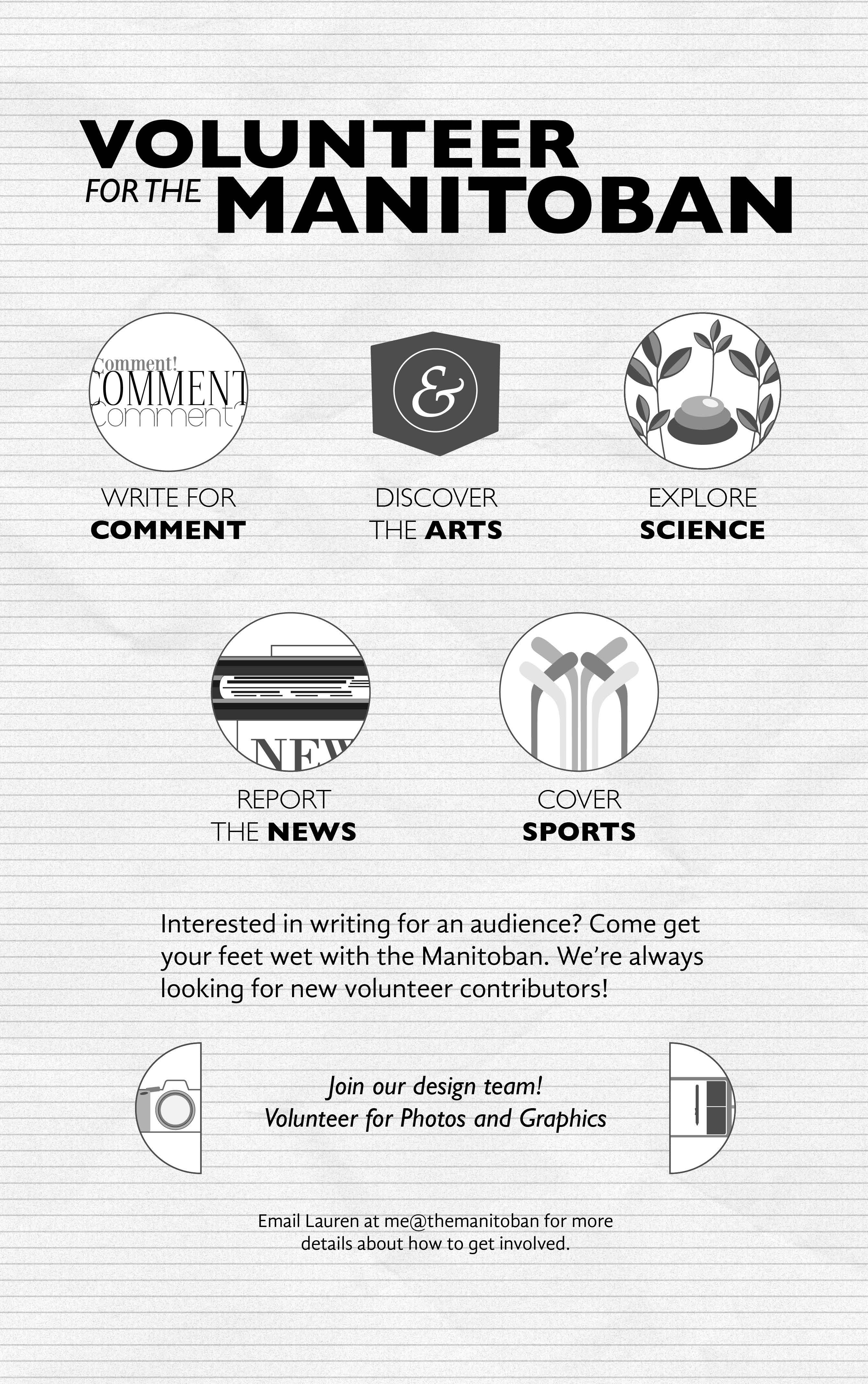
16 minute read
Editorial
from 7 December 2022
This is the virtual bad place
The balkanization of the information highway is dangerous
Grace Anne Paizen, staff
When Elon Musk purchased Twitter this year for US$44 billion, the ship-jumping began, with many Twitter users urging others to switch platforms.
What is perhaps being reached for, yet overlooked, in Musk’s disastrous takeover of the social media platform is that one billionaire should not be able to purchase the virtual town square. What’s more, Twitter’s new ownership has shone a light on the ugly balkanization — in other words, division and compartmentalization — of the internet into privatized companies.
The World Wide Web was created by Tim Berners-Lee as an information superhighway. It was always meant as an access point for the exchange of information and connecting people from opposite sides of the world, meaning you didn’t necessarily have to join a private company’s website to speak to other human beings online.
David Bohnett, the founder of the early internet’s free webpage platform GeoCities, said in a recent interview with Gizmodo that “we’re really not one Internet,” noting, “it’s become very what I call ‘balkanized.’”
While monetization has played a major role in destroying the fun of the internet — one only has to attempt to watch a YouTube video without an adblocker to see my point — it is how the internet has been balkanized throughout the world that has set the present-day internet’s dangerous precedent.
The constant pop-ups and paywalls have been a convenient distraction from how the internet has separated the masses into distinct echo chambers, but this balkanization has been occurring quietly for years.
One only has to look to the internet of the early-2000s to see how it has since been partitioned into Myspace, 4chan, Reddit, Facebook, Instagram and Twitter, among others.
However, the World Wide Web has always been a virtual Wild West if you know how to peel back the corners of the viewable web. Yet, it is this surface-level sphere of balkanized websites-turnedapps responsible for shaping discourse and dividing the masses more than ever.
Google is a large player in the balkanization of the web as the premier internet search engine. The problem with Google is in fact
staff Jenna Solomon / / graphic
what has become the problem with the internet in general — search results are returned and ranked by what Google’s algorithm believes is most relevant to the query.
This means that the search engine might not be giving you the information you were actually looking for. More importantly, as a search engine Google does not prevent Search Engine Optimization (SEO) on its platform.
Google hits thrive on SEO, meaning that mainstream news websites will purposefully use viral keywords in their headlines or modify their website to appear on Google’s first page of results. This can lead to the same handful of news sites appearing in searches again and again.
While having mainstream news sites in your search results is not necessarily bad, through SEO practices Google furthers the problem where the same few corners of the internet reach out to filter their online customers into subsequent left-wing and right-wing perspectives.
In comparison, the early age of search engines was directory driven, where you had to seek out your corner of the internet while being presented with other options.
All of this has made me wonder if nostalgia for the ’90s is not necessarily for “simpler” times — the world’s affairs have never been simple — but for the tangibly simpler, like the dial-up internet that didn’t necessarily steer you into your culturally determined echo chamber.
While not trying to romanticize the early internet too much, it really was a time before the rise of social media bots, where you could carve out a modifiable space for yourself in the new virtual world.
It was before the rigid presets of social media websites, before the dark times of YouTube ads, before the empire of billionaires controlling cyberspace from web service giants like Amazon and Meta. 40 per cent of the surface-level internet that is used in some aspect of our everyday lives is controlled by Amazon Web Services (AWS) — from Netflix to the Globe and Mail. AWS specifically helps companies maximize their SEO, meaning that AWS is help-
ing to filter which websites and information are brought to the forefront of searches. Once again, this creates an easier entry into our virtual echo chambers by prioritizing only mainstream websites to consumers. Now more than ever, the balkanization of the internet has spilled over into real life. From Pizzagate to QAnon to the trucker convoy, the shepherding of internet users into echo chambers has divided us more than ever Now more than ever, the balkanization of the internet has spilled over into real life and spurred on dangerous real-life events. One only has to look to Jan. 6, 2021 in the United States to see how one man’s social media peddling inspired a real-life wave of angry voters who believed the voting system was rigged. Worse yet for Canadians, federal Conservative party leader Pierre Poilievre’s YouTube videos were recently found to have been using male supremacy dog whistles in their tags. Male supremacist and misogynistic rhetoric has led to multiple deaths in our country, most recently in the 2018 Toronto van attack when a self-proclaimed “incel” motivated by misogyny killed 11 people.
What is most concerning outside the political realm is how dangerous the tenuous access to an internet host is in the world.
In 2021, pre-Meta Facebook went down. This rocked the Asian, African and Latin American economies, as Facebook was practically the only corner of the internet available in many of those regions. Real working-class people had their incomes disappear simply because of the separation of the internet into boxes such as Google, Meta and AWS.
The balkanization of the internet, then, has never been more dangerous.
We need to begin holding these tech giants accountable through active petitioning and boycotting. Further, we need to put real-life pressure on governments to hold the companies controlling the information superhighway accountable, or better yet, break them up. Otherwise, the virtual world will continue to be monopolized, and in turn, its users balkanized.
‘Going woke’? Or just not straight and white?
‘Go woke, go broke’ just another supremacist dog whistle
Braden Bristow, staff
Irecently saw Disney’s Strange World in theatres. After watching the movie, I went to Twitter to see what others were saying, and whether my opinions on the movie made me some kind of social outcast. As it turns out, this film made some people very upset.
The phrase “go woke, go broke” has been levelled against this movie to explain its general commercial failure. The going “woke” here refers to the fact that one of the film’s protagonists, Ethan Clade, is mixed race and queer. It is important to note that in the real world, the actor who plays Ethan, Jaboukie YoungWhite, is also a gay man.
First, let me explain what “go woke, go broke” actually means, as well as its social subtext. The term “woke” has been invoked to refer to media that has a social justice aspect to it, and that attempts to address social injustice. “Going broke” is, obviously, losing money.
In summary, to go woke and then to go broke is to take a “politically correct” action, then lose a great deal of money — pretty straightforward. This term is regularly thrown around by rightwing Twitter users and antiwoke YouTubers complaining about video games, television or film.
Generally, when a piece of media includes a character who is not white, male or straight, it is only a matter of time before it is labelled as “woke.” If your first thought when you see When it comes to films for example, a same-sex couple is “wow, more wokeism,” you might be homophobic a 2021 list of “Top 10 Woke Movies That Ruined Their Franchises” from Bounding into Comics is made up of films that include a female or racialized person as a protagonist.
In terms of video games, God of War Ragnarök and The Last of Us: Part II were both accused of going woke then going broke, yet have each made millions of dollars in sales. By accusing a company of “going woke” when they include a non-white, nonmale or non-straight character, there is the strong implication that the very existence of 2SLGBTQIA+ people, women and racialized people is political. Believe it or not, these people are very much real and exist. I myself am a bisexual and Métis person. Yet, if I were to headline in some form of media, it would be labelled woke and criticized across social media. But diversity in media is important, as it exposes us to new perspectives, helps further representation and encourages creativity. The term “go woke, go broke” also implies that if media fails to attain commercial success it is inherently less valuable, and this is simply untrue. Just because Disney’s Strange World did not garner financial success does not mean that as a piece of art it is an absolute failure, nor does it mean that its financial failure was because of its diversity. Even if this were the case, other forms of “woke” media have been resounding successes. The aforementioned God of War and Last of Us, as well as Get Out, House of the Dragon and The Owl House are all, generally, massive successes despite being considered “woke” by some. Judging a piece of media based on a lack of straight white men, how much money it made or the proportion of positive to negative reviews is an incredibly reductive way of viewing art. Art, and media in general, should be appreciated for what it means to you and the work that went into it. Also, if your first thought when you see a same-sex couple is “wow, more wokeism,” you might be homophobic. Which, in case I need to clarify, is a bad thing.
Part of what makes the “go broke” mantra frustrating is that it pushes a supremacist narrative that people grab onto. I do not think it is unreasonable to claim that “go woke, go broke” actively creates prejudice for any form of media that makes an earnest attempt at representation or diversity.
If you are the kind of person who is sympathetic to the “go woke, go broke” cause, take the time to understand and appreciate why racialized or 2SLGBTQIA+ people are being represented in film. And if you are the type of person who enjoys so-called “woke” media like I do, keep doing your thing.
comment@themanitoban.com



The joy of Chrismukkah
A multicultural holiday season
Sarah Cohen, staff
Chrismukkah. The intersection of Christmas and Hanukkah. Few people get more than one aspect of the holiday season. I am one of them.
As a Jew, my family celebrates Hanukkah every year. The celebration of lights! Commemorating the oil that burned for eight whole days and nights in the Second Temple.
We celebrate with the menorah, adding a new candle every night until nine brightly shining candles stand tall. We make latkes and smother them with applesauce and sour cream, accompanied by mom’s melt-in-your-mouth brisket. A few nights end with the exchange of presents, the others we give back to the community.
A week or so later, my mom and I fly up to the snow-covered streets of Winnipeg to decorate the Christmas tree centred in my Gramma’s front window. We wrap presents for family, bake batch after batch of cookies and on Christmas Eve, we all gather with paper crowns to eat a turkey dinner.
Waking up on Christmas morning feels magical, even now that I’m in my 20s. However, there is one tradition I cannot disregard. For context, growing up, all my best friends were Jewish. When we each asked our parents why we couldn’t have a Christmas tree, we got the same answer: “you are Jewish and don’t get a Christmas tree.” The occasionally lucky got a
Hanukkah bush. This leads me to my childhood best friend,
Ariel. Ariel and I were mischievous, and celebrated anything to the highest extent possible. So when we wanted Christmas, we did it our way.
That first Sarah-Ariel Christmas, we got a mini tree from Target. We decorated it with ornaments and put our stockings underneath. We blasted classic Christmas music while baking treats for Santa and snuggled up in matching pjs, hot chocolate burning our tongues while Christmas movies played. And right before bed, we set out a plate for Santa and his reindeer.
I’m sure Ariel knows this now, but after she had gone to sleep, I stuffed our stockings with candy canes and little knick-knacks from the Target dollar sections. I ate a cookie and placed the note my mom had written as Santa beside the plate. I moved presents under the tree, then crawled back to bed to wake up hours later and watch Ariel experience a Christmas morning. Stockings dumped and presents unwrapped, we finally got Christmas.
Now that it’s been a good six years since this tradition ended, I realize how much I wanted to share the joy of Christmas with my best friends. There was something about Christmas that I felt every year that was unfair my other Jewish friends didn’t get.
The one night a year where you know most of the world is doing the same thing. The calm and happiness that comes with being around people you care for, when you can celebrate the humans in your life. Christmas is just that time of the year.
Although, my absolute favourite years are when Hanukkah spans through Christmas. We call this Chrismukkah. During those years, we bring our menorah up and sit it next to the lit-up tree. I get to share each night of the holiday with our non-Jewish family. I feel proud to be able to share that part of my culture.
That leads me to my grand idea. I think Christmas should be secularized even more than it is. And out of all the places in the world, I think North America is the place to do that.
The holiday is already an ever-increasing consumers’ dreamland. We all crave Starbucks red holiday cups, pictures with Santa and snazzy holiday deals, so why not move toward an even more secular, or at least a less religious holiday?
Every person should get to decorate a tree, sing Christmas music, watch Hallmark movies, bake for a fictitious, never-aging man and wake up with that feeling on Christmas morning without the feeling they are participating in religion.
However, taking religion completely out of a day that celebrates the main guy’s birth seems nearly impossible, especially when a majority of people in North America believe in Christianity.
At the same time as wanting the whole world to celebrate Christmas, I feel very lucky that I get the community and celebration of Hanukkah. Growing up in a multicultural family was not about getting loads of presents, but about the joys of each holiday and the time I get to spend with my family.
Really, the holidays should be about spending time with the ones you love and giving back, no matter which you participate in. Whatever it is you celebrate, I wish you all a happy holiday season and wonderful new year.

comment@themanitoban.com
Come, let’s talk
Help UMSU help you
Jaron Rykiss, UMSU president
Throughout the past several years, UMSU has been criticized for not listening to students.
When I ran to become UMSU president, I heard these concerns and wanted to do better, but I knew finding a solution to years of students feeling unsupported would be a challenge. However, I campaigned with the promise that I would work alongside the executive team, staff and board of directors to create an UMSU for all.
Today, I am sending all Bisons an invitation. A request. A call out for collaboration. If you want to chat, let me know! I, along with the rest of this year’s executives, are eager to help, have discussions with students and meet with you. Please, help us do what we were elected to do — serve and support the University of Manitoba student body.
I plan to address the disconnect between UMSU and students in three ways, the first of which involves dropping by my office hours. Each week, on Mondays from 12 p.m. to 1 p.m., I hold office hours in a public university space, whether at Degrees, IQ’s, VW’s, the Fireside Lounge in University Centre or even Campo. Please, stop by and say hi, ask a question, tell me that you aren’t a fan of my haircut — whatever you’d like! These office hours aren’t a performative gesture, they are meant to be a time when students can connect directly with myself or other members of the executive team.
Another option would be to send me an email or DM. If you decide that you want to chat, I am anything but hard to reach on any given day. If you have questions, concerns, comments or even if you just want to ensure that you can reach me, please, I beg of you, let me know!
Some folks might be uncomfortable with in-person meetings. I totally get it! In that case, just know that I will be checking my email (pres@ umsu.ca) and Instagram (@ jaronrykiss), waiting for questions or whatever you may like to roll in. I am constantly connected and ready to support students in whatever way they want or need!
A third option is to attend an UMSU board of directors meeting. Every two weeks on Thursday evenings, the union holds a board of directors meeting in the UMSU chambers, located at 176 Helen Glass.
These meetings are open to all students, and are a great way to meet the entire executive team and students from nearly every faculty. Not to mention the fact that they are always catered by Degrees.
All UMSU members — which includes all undergraduate students at the U of M — have automatic speaking rights at these meetings, and the ability to bring motions to the floor. While there are always projects that the executive or UMSU committees are working on, there will undoubtedly be things that students are interested in tackling that UMSU may not have on its radar.
The bi-weekly board meetings are a great venue for folks to get engaged, have their voice heard and maybe even start their journey into student politics.
Each year, an executive team is elected to serve all Bisons completing their undergraduate degrees. We come into these roles with ideas on how to improve the union, and often those ideas come from our own personal experiences with UMSU and the university.
The only way that we can gain additional perspectives, ideas and knowledge about university affairs is if that information is brought to us. Of course, it is our responsibility to keep our eyes and ears open and to listen to the student body, but we also rely in part on students telling us the specific problems that they, along with their peers, are having so that we can collaborate to remedy these issues.
I want every single one of you to know that we are here to help. Whether it is a faculty association that needs support with event co-ordination, a club that needs resources for a campaign or even a studentat-large who has a burning question about UMSU operations, we are here to support you through whatever your challenge may be.
Together, we can strengthen the union. UMSU will continue to be here and listen to students, but we need your help to truly make a change. Please, tell us what you need, and tell us how we can help.







